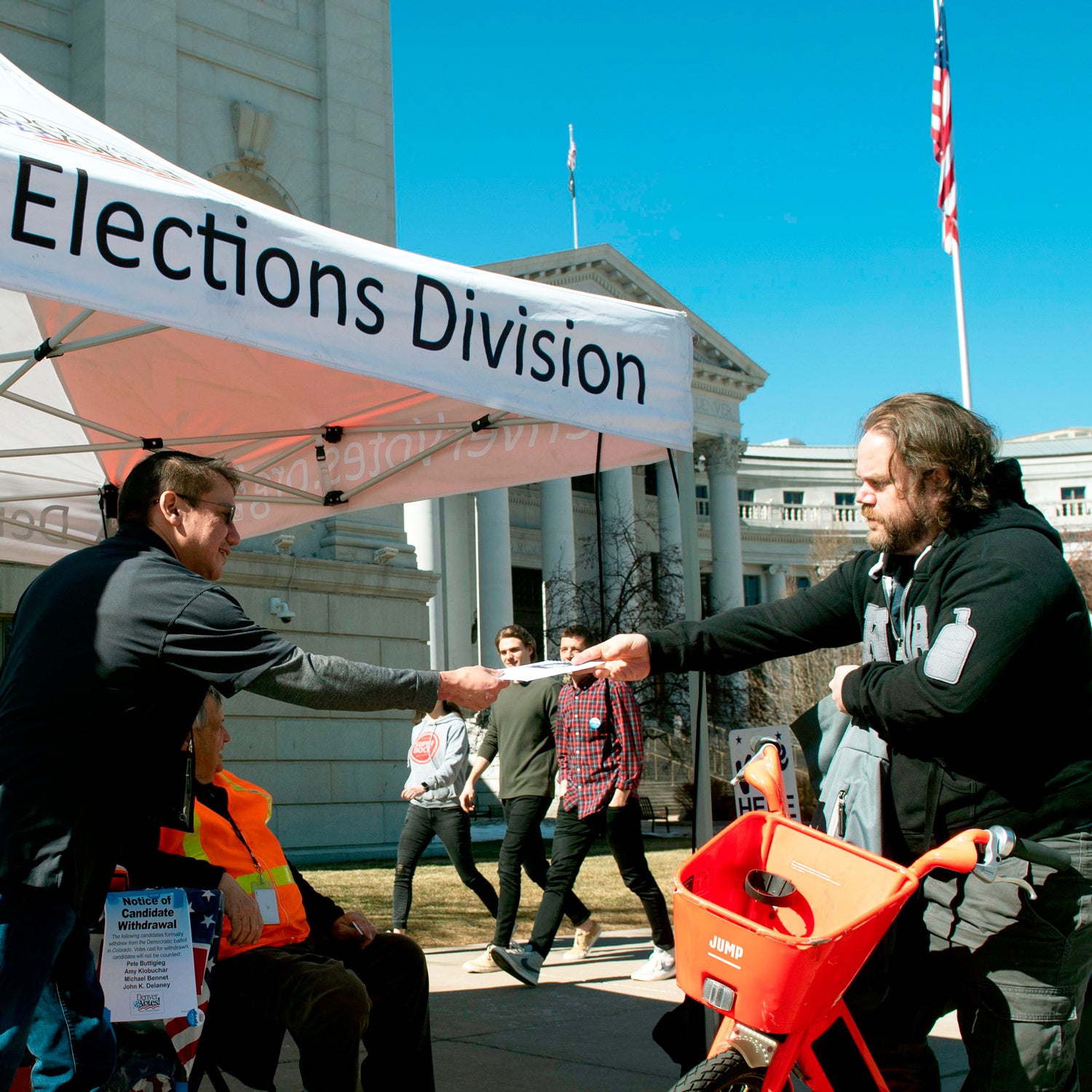In the depths of the polarized presidential primary season, as we all collectively prepare for the worst of the coronavirus pandemic, I have been vacillating between wanting to take a nap and the antsy need to do something—anything—to try to ensure that the things I hold holy (namely a sustainable planet, is that really too much to ask?) don’t get steamrolled. I feel apathy and anxiety in equal, overwhelming measure.
Part of that worry—the political half, not the hand-sanitizing half—stems from the feeling that my vote doesn’t matter much, and that, even if it did, there’s a big divide between the priorities we hold when we cast our vote and the policies that get enacted—or, more often, that don’t. I am not wrong, at least on the second front.
For the past ten years, Colorado College, a small but mighty liberal arts college in Colorado Springs, has conducted a project called State of the Rockies, a bipartisan poll conducted in the eight states that make up the Mountain West: Arizona, Colorado, Idaho, Montana, Nevada, New Mexico, Utah, and Wyoming. The survey asks residents like me—many of them hunters, fishermen, hikers, and bikers—about their priorities for climate change, land use, and other environmental issues.
This year’s version, the , released at the end of January, found that the majority of Westerners want broader climate policy and stronger environmental protection. “Voters in the West increasingly believe their lands and lifestyles are coming under attack from the impacts of climate change and energy development,” the study results read.
Over the past decade, those beliefs have shifted significantly. This year, a third of respondents cited climate change as their biggest concern—up from only 5 percent in 2011, with dramatic swings in states like Montana, Utah, and Arizona. “We’ve consistently seen strong support for protecting wildlife, clean air and water, and public land,” says political science professor Corina McKendry, who directs the project. “But the percentage of people who now see climate change as a top-of-mind concern has changed a huge amount.” Now, it’s the first concern many voters listed.
In terms of specific issues, this year’s poll found that three-quarters of respondents want their member of Congress and Governor to have a plan to reduce carbon pollution. Nearly three-quarters of voters—and 82 percent of Latino voters—favor a national goal of protecting 30 percent of America’s land and ocean areas by 2030. Just over two-thirds, 67 percent, want to protect national public lands instead allow more drilling and mining. And 79 percent say the lack of resources to maintain public lands is a serious problem.
Several of the questions measured response to Trump administration policies. Whether Republican or Democrat, urban or rural, 71 percent of respondents are opposed to the removal of Clean Water Act protections. Two-thirds believe it was a “bad change” to allow for more drilling instead of protecting sage grouse habitat, and the same majority doesn’t like reducing protection for threatened species under the Endangered Species Act. In every Western state except Wyoming, a majority of voters support a transition to 100 percent renewable energy.
These are broad brushstrokes, but together they paint a cohesive picture: regardless of background, income, or geography, we want our elected officials to protect natural resources and stick their necks out for the planet. And right now, what we say we want is very different from what we’re getting. That disparity breeds frustration, disillusionment, and distrust of the government.
So why, if there’s such an overwhelming desire for environmental protection, isn’t it showing up in policy? Part of the reason, McKendry says, is that we’re fighting three decades of political dog whistling, where, thanks to environmental issues have been considered soft liberal issues. That attitude is shifting, she observes, in places like Idaho and Utah, where residents are feeling the impact of climate change in terms of wildfire and water scarcity. But, she says, those changing attitudes take a long time to trickle up into political action. “In the past,” she says, “we had politicians people supported overall, even if they didn’t support their environmental stance. But now we’re starting to have bipartisan recognition that climate change is impacting the West.” The polls show that in the years since the last presidential election, concern about environmental issues has heightened significantly, bumping up against cultural and economic issues, like energy use, which have steered voters in other directions in the past.
Whether Republican or Democrat, urban or rural, 71 percent of respondents view the removal of Clean Water Act protections as a bad move.
Another big factor is the Trump administration’s blatant disregard for the due process and the will of voters. Federal agencies from the Bureau of Land Management to the (neither of which currently have congressionally approved directors have steamrolled over public concern, in everything from methane emissions to grazing easements. New Mexico senator Tom Udall, a Democrat who co-introduced the idea of protecting 30 percent of land by 2030, says that part of the work in public lands is going to be undoing the current administration’s wreckage, something that will take mass mobilization on the part of voters who believe in conservation, and the politicians who represent them.
That mobilization feels frustratingly frozen, but there are some signs that public pressure is working. Earlier this month, before COVID-19 swept all other issues off the table, President Trump tweeted support for fully funding the Land and Water Conservation Fund and addressing the National Park Service maintenance backlog, projects that his administration’s most recent budget proposal had failed to fund. The tweet name-checked Republican senators Cory Gardner of Colorado and Steve Daines of Montana, both of whom are up for re-election in states that have showed strong support for conservation. Whether or not the tweet amounts to any kind of policy, the voices of voters are bubbling up.
By the end of March, all but two of the Rocky Mountain states will have voted in the Democratic presidential primary. Both Joe Biden, the presumptive Democratic nominee after Big Tuesday, and Bernie Sanders believe climate change is an existential crisis, although their plans to address it . Biden’s “” aims to make the economy zero-emission by 2050, while Sanders’s “l” wants to hit similar targets by 2030. Correlation isn’t causation, but so far, it appears Sanders’s platform on climate and health care have resonated in the West. As of March 11, he had won the primary in every Western state but Idaho that has voted so far. Arizona Democrats go to the polls March 17th, and Wyoming will caucus April 4th. Montana and New Mexico have to wait until June 2nd.
It’s going to be a long road to November, and as voters we have to be both hypervigilant and excruciatingly patient. If a sustainable future is important to you—say you’re one of the people who answered the poll—you have to keep pushing and voting and showing up, even if it’s exhausting.
Our representatives will have to get the message eventually, it’s just a matter of when is soon enough. “Elected officials ignore the will of Western voters not just at the peril of the planet,” Udall says, “but also at the peril of their own political futures.”


